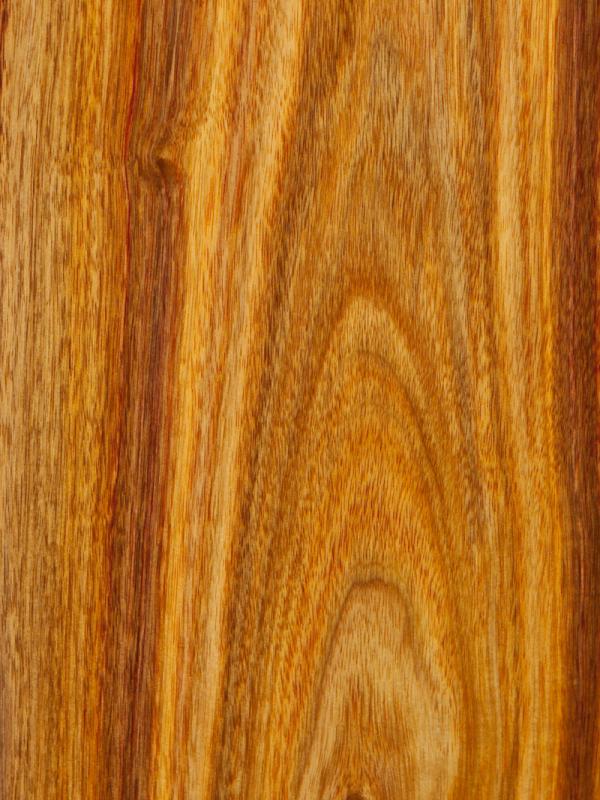
Family: Fabaceae or Leguminosae, the legume family
Origin: This tree grows sporadically from Panama to Ecuador and southern Brazil.
Other common names: Almost every locality where this tree grows has one or more distinctive common names for it without regard to the species. Some of the most popular are Arariba, Porcupinewood, and Putumuju.
The tree: Canarywood is generally a large tree reaching heights of 100 ft. or more with a trunk diameter of 30 to 50 in. Its big leaves are imparipinnate growing 7 to 17 opposite to alternate leaflets. The flowers are borne in terminal panicles and are usually yellow or purplish. The large samara-like pod has 1 to 3 seeds and looks similar to a chestnut bur sporting wings like a gigantic maple seed.
Appearance: The sapwood, which is clearly demarcated from the heartwood, is pale yellowish. The heartwood is a vivid yellow or orange, usually variegated and sometimes rainbow-hued. As it ages, it typically darkens to red or brown. The texture and luster varies as does the grain, varying from straight to irregular.
Density: Average reported specific gravity is 0.61 to .69(ovendry weight/green volume), equal to an air-dried weight of 47 to 54 pcf. Janka hardness is 2000 pounds of force. .
Drying & shrinkage: It dries at a moderate rate with very little or no warp and shrinkage. Average reported shrinkage values (green to ovendry) are 2.4% radial, 5.6% tangential and 8.4% volumetric. The wood is dimensionally stable.
Working properties: Canarywood is easy to work with any kind of tools. It sands and finishing well.
Durability: It is highly durable and is highly resistant to decay and insects including termites and teredo marine borers. It does not take preservative treatment well.
Uses: With its beautiful grain and stability, Canarywood is used largely for fine furniture and cabinetry. It is also used for boat parts such as keel, planking and trim plus many other uses such as heavy construction timbers, flooring as well as being sliced for veneers.
Availability: On a commercial scale, it is seen only occasionally at a fairly expensive price.